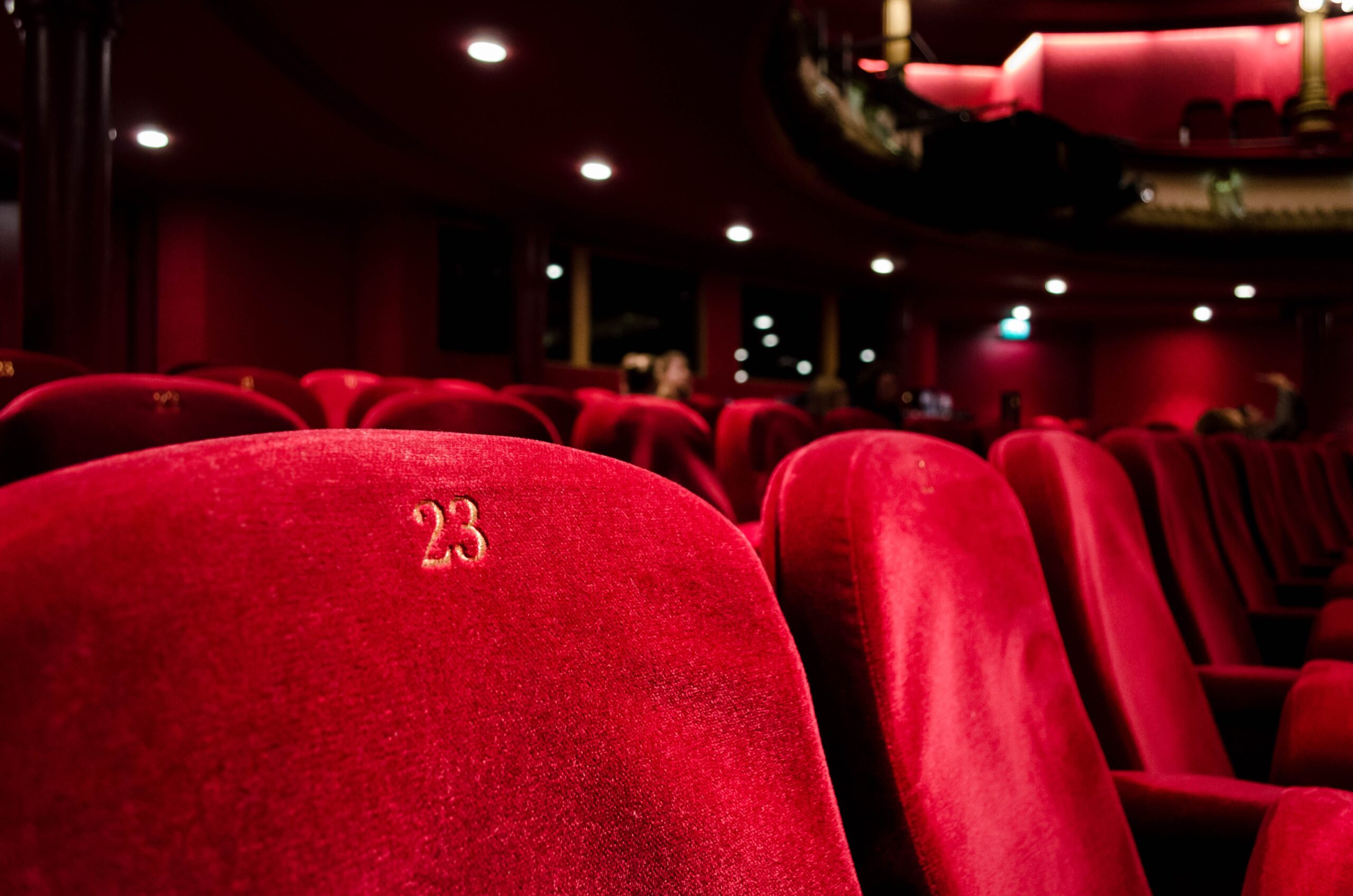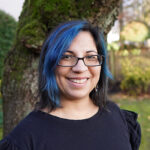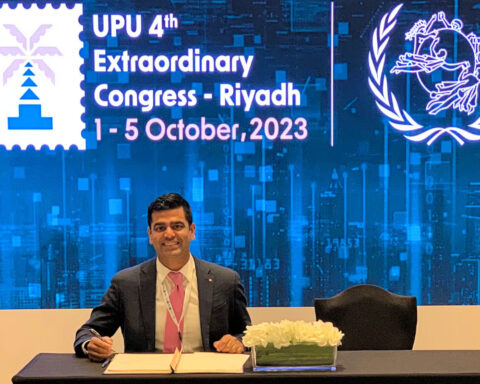Former and current board members of the Vancouver Latin American Film Festival are at loggerheads over allegations of sexism and harassment levelled against the festival’s director, placing the future of the event, which attracts over 6,000 people annually, at risk. The festival’s last edition ran from Aug. 25 to Sept. 5.
Last October, the group held a virtual open dialogue session where they invited the public to discuss how the festival can move forward given the allegations of “harassment, sexism, bullying, and lack of transparency” against director Christian Sida, which they had outlined in an open letter released the day before the festival began. Over 25 people including members of the public attended the virtual session.
“We want to see all Latin American organizations in the city dedicated to the arts thrive,” Carmen Rodríguez, a Vancouver-based writer and educator, said during the session. Rodríguez has been a long-time contributor to the festival in various roles, including as part of the programming committee.
“But that can only happen in the context of respect and good governance.”
VLAFF was founded in 2002 and has since become an important staple among cultural events in the city and in elevating Latin American voices both domestically and abroad. It is slated to celebrate its 20th anniversary in 2022.
But the allegations have cast a shadow on that.
The open letter alluded to the Festival’s 2020 Annual General Meeting in which Sida allegedly “shamed, belittled and vilified a female member of the Board” for allegedly trying to bring attention to issues related to Sida’s “handpicking” of Board members and “the need for structural changes within the organization.”
The letter and virtual conference came after previous unsuccessful meetings where the group had brought their concerns to Sida and presented the Board with several recommendations that went unheeded, including cancelling the 2021 edition of the festival and for Sida to issue a public letter of apology.
However, Carmen Henríquez, a filmmaker and producer who joined VLAFF’s Board in 2019, told NCM, on behalf of the Board, the letter came as a surprise because the Board had been receptive to the discussions all along.
“We began conversations several months ago…and we learned a lot from them. We were feeling that there was a great exchange of ideas,” Henríquez says.
Though she believes “a lot of [the impact of the discussions] was in some ways positive,” she says the open letter had a dampening effect on this year’s festival.
Sexism and bullying
Several members of the former VLAFF group said they had either experienced or witnessed incidents of sexism and bullying while working for the festival.
Sarah Shamash, a filmmaker and former VLAFF curator and jury member, recalled a colleague being berated by Sida on many occasions, including one that left her “shaking in an opening gala after [Sida] had yelled at her in public.”
Shamash also described the working atmosphere during her time at the Board as “walking on eggshells” for fear of Sida’s reaction to some of the female staff’s questions and suggestions.
Sonia Medel, a former Coordinator of Community Partnerships who’d also been allegedly berated by Sida, said despite the “sexism and machismo (that) are a part of our Latinx culture,” she has “always felt empowered.”
“But when I started to voice my concerns about [Sida]’s behaviour, his treatment of me changed,” she said at the virtual session.
Another member, Jose Fernandez, recounted an incident in 2019 in which Sida “was being extremely defensive when Board members and staff were providing feedback,” adding that the way the feedback was received was “very sexist as well.”
Victor Martinez Aja, one of VLAFF’s founding members and therefore a recipient of the letter, said while “one incident can be [classified as] gossip,” the sheer number of allegations is a point of concern.
“When it’s seven individuals referring to the same thing, there is something wrong,” he told New Canadian Media in an interview.
Governance irregularities
Former Board member Adriana Contreras described how in recent years, the governance of the festival had become “reactive,” in part because Sida was living part of the year in Mexico. This resulted in the planning work becoming increasingly stressful, in particular as the festival’s next edition approached. Efforts to address these issues were met with resistance.
“Whenever there was an attempt by members of the Board to correct the situation, they were truncated,” Contreras said at the virtual session.
Another former Board member, Ana Maria Carrizales, said there was a lack of transparency from Sida and other Board members, particularly in terms of outsourcing external support and honouring promised honoraria, and “in terms of how the budget and the management of the organization was being handled.”
When Carrizales and other Board members requested more clarity, they were met with “continuous interrupting and sidelining of propositions mostly coming from female Board members. This ended up causing quite a bit of psychological and emotional fatigue,” she said.
Aja says part of the problem stems from the fact Sida wears many hats within the non-profit organization, namely as both VLAFF’s programming director and festival director, which makes it easier to avoid full transparency.
“You cannot say it is an open non-profit organization, because who appointed that person to all those hats?” Aja says.
“There have to be clear boundaries and a clear understanding of what is the role of the staff and the role of the volunteers and the role of the governing body organization.”
Moving forward
In addition to reaching out to VLAFF’s Board, NCM requested an interview with Sida.
Sida declined to speak with NCM, pointing to a statement VLAFF has published on its website to address the accusations, including vows “to incorporate more justice, equity, diversity and inclusion principles into our by-laws and policies.”
The statement also links to a page outlining VLAFF’s code of conduct and to a recently published action plan. On Sept. 1, 2021, the organization also published its anti-harassment policy.
When asked if Sida would issue a public letter of apology, one of the main requests made by the former VLAFF group, Henríquez said that “there were apologies and several emails” that were sent, but was unable to confirm any possibility of Sida or the festival publishing such a letter.
“I’m not sure what the content would be about,” Henríquez declared. “We have a list of activities that we are engaging in and we’re delivering content to the public, slowly, as we can this year.”
Henríquez indicated that the Board has also been engaged in conversations with each of the festival’s partners and sponsors, many of which are still ongoing.
In an email, Michael Boucher, director of cultural programs and partnerships at SFU Woodwards, one of VLAFF’s partners since 2010, said that they “are beginning active discussions with VLAFF regarding the letter.” However, as he was overseas when it was published, he added that it would be “premature” and “inappropriate” to comment on the matter until he’s had the opportunity to properly review the letter.
It is unclear if the City of Vancouver’s Cultural Services office, one of the festival’s funders, has initiated a conversation with VLAFF regarding the allegations.
Henríquez says the Board is having conversations about VLAFF’s future steps and that they “will tell the public what that is when we are ready to say.”
“Definitely there are changes, because change is necessary. It’s not because of this [former VLAFF] group, but because, as a sign of our times, a change of dialogue is coming in, a different way of looking at how we see each other in the world, how we want to be treated,” she says.
Rodríguez says none of what has transpired has been with the “intent of shaming VLAFF. On the contrary, it is a way of ensuring that there is accountability for the community, that the community knows what is happening in the organization so that we, together, can suggest the ways in which we can move forward.”
Disclaimer: NCM reporter Andreina Romero was a VLAFF Board member from 2014 to 2016. During her time at VLAFF, she did not witness or experience any of the issues described by the former VLAFF group.
Editor’s note: A previous version of this article indicated Sonia Medel’s title at VLAFF was as a curator and jury member. Sonia Medel served as Coordinator of Community Partnerships at the festival.
French Editor - Born in Venezuela, Andreina Romero is a freelance writer with New Canadian Media. Prior to writing for New Canadian Media, Andreina was a bilingual contributor at The Source Newspaper, also known in French as La Source, an intercultural newspaper in Vancouver. She is also the creator and host of the podcast Girls Talk About Music and Wigs and Candles which explore music and period films from a uniquely female and Latin American lens. In 2020, Romero also co-founded Identity Pages, a youth writing mentorship program.





